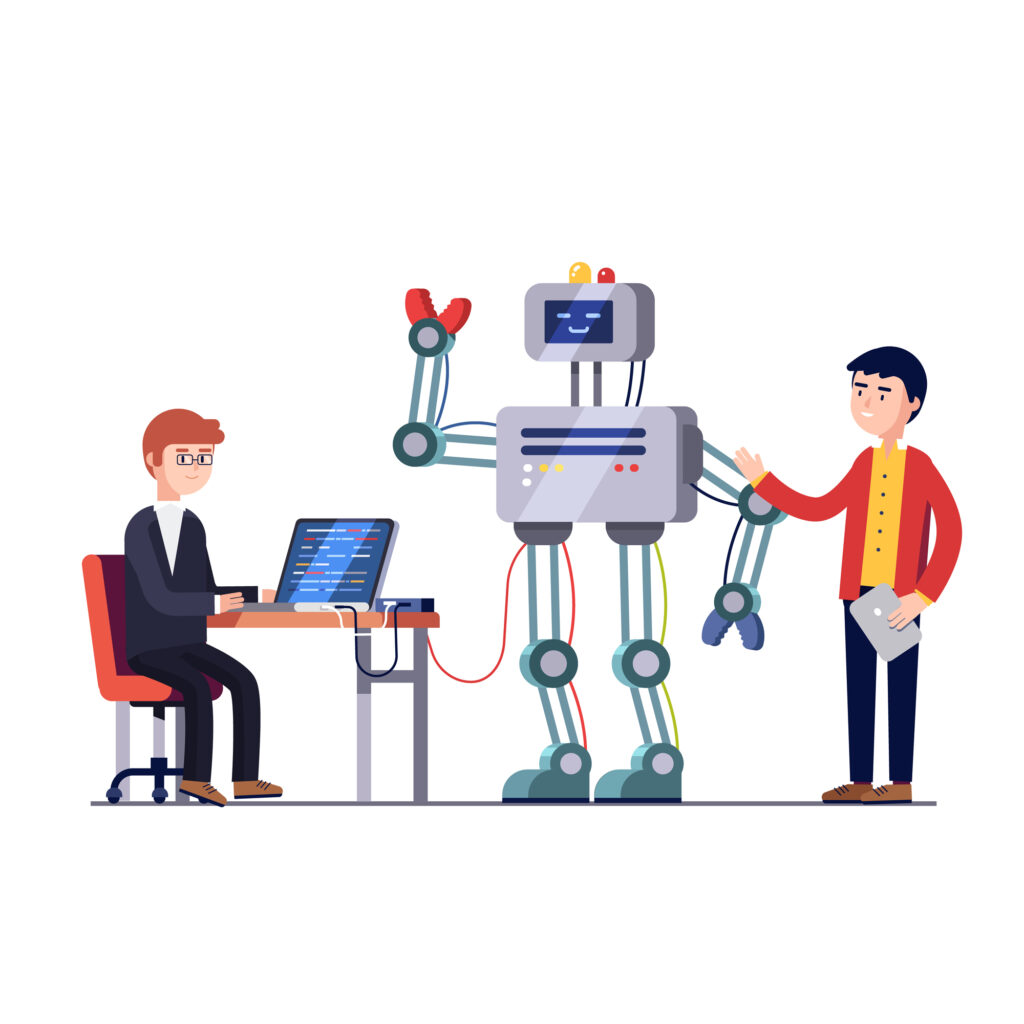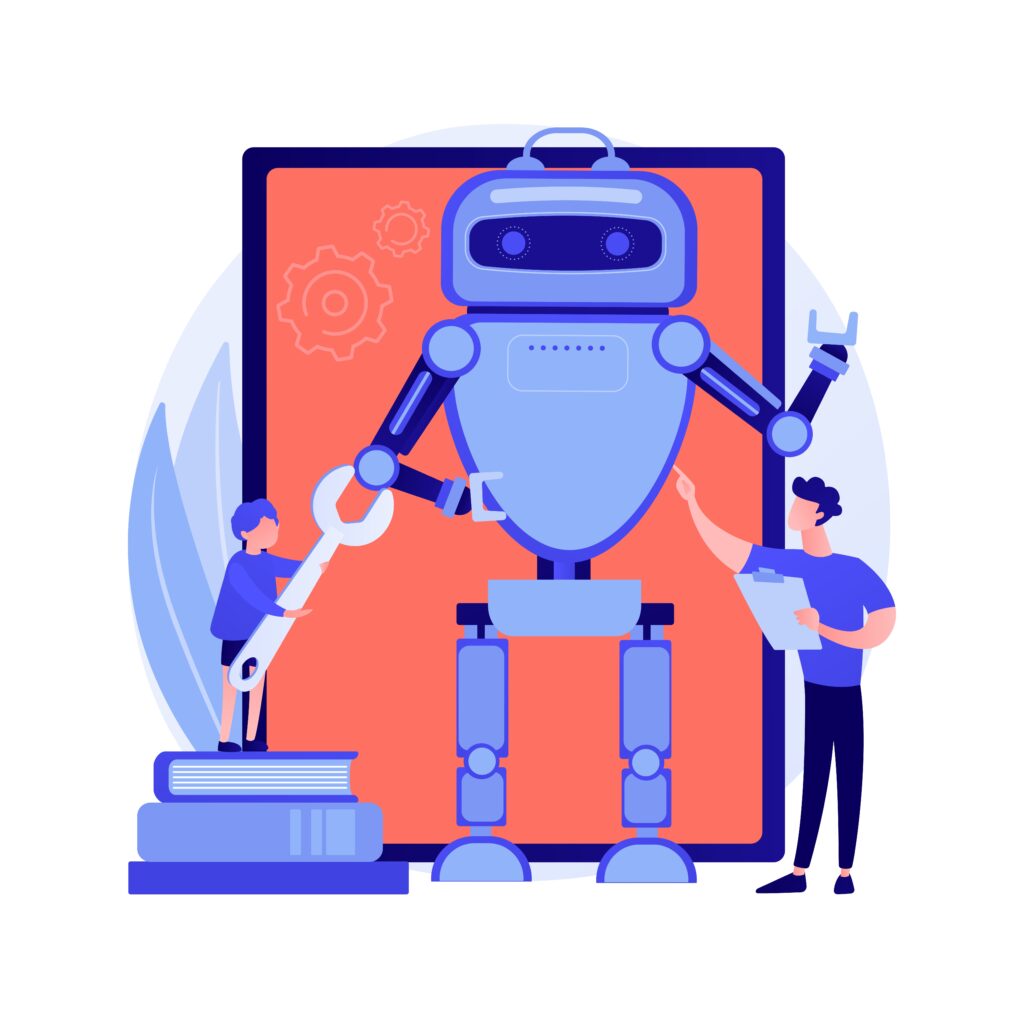Startup Hiring Guide: 101 Key Strategies
Hiring Landscape Insights

In today’s fast-paced business environment, startups face unique challenges and opportunities in attracting and retaining top talent. The foundation of any successful startup lies not just in innovative ideas or market potential but critically in the people who turn visions into reality. Navigating the startup hiring landscape requires a strategic approach, one that balances the agility of a lean operation with the foresight of long-term growth.
The current landscape is characterized by a competitive job market where talent has the leverage to be selective. Startups must differentiate themselves not only through their business offerings but also by cultivating a compelling employer brand. This involves clearly communicating the company’s mission, values, and culture, as well as the potential for personal and professional growth within the organization.
Talent’s Impact on Success
The impact of hiring the right talent cannot be overstated. Startups, with their limited resources, depend heavily on the efficiency, creativity, and adaptability of their teams. Each team member often wears multiple hats, contributing to various aspects of the business. This makes the cost of a mis-hire not only a financial burden but also a potential setback to product development, go-to-market strategies, and overall morale.
However, the right hires can propel a startup forward by driving innovation, fostering a positive culture, and attracting more talent. They bring fresh perspectives, specialized skills, and a resilience that is crucial for navigating the uncertainties of the startup ecosystem. The synergy of a well-composed team amplifies individual contributions, leading to breakthroughs that can define the future of the startup.

In this dynamic setting, startups must adopt hiring strategies that are both effective and scalable. This involves a mix of traditional and innovative approaches, from leveraging personal networks and industry events to using digital platforms and social media for wider reach. It also means being clear about the role requirements, flexible in terms of non-traditional backgrounds, and quick in making decisions to capture top talent.
To master the startup hiring landscape, companies need to be proactive in understanding the needs and motivations of potential candidates. Offering competitive compensation, equity options, and opportunities for personal development can make a startup stand out. Additionally, fostering an inclusive and supportive culture not only attracts but also retains the talent that will fuel the startup’s growth.
By focusing on these key strategies, startups can navigate the complexities of hiring in today’s market, laying a strong foundation for their future success.
The Value of Top Talent in Startups
Innovation Through Talent
In the startup world, innovation isn’t just a buzzword; it’s the lifeblood that fuels growth and competitive advantage. The recruitment of top talent is pivotal in this regard. Individuals who are not only skilled but also possess a natural inclination towards innovation can significantly accelerate a startup’s trajectory. These are the people who question the status quo, think outside the box, and are not afraid to fail.

Their creative problem-solving abilities and resilience in the face of challenges drive the development of groundbreaking products and services, enabling startups to disrupt markets and capture the attention of investors and customers alike.
Moreover, such talent often brings a wealth of experience and a diverse skill set, contributing to a rich, collaborative environment where ideas can flourish. They inspire their peers, foster a culture of continuous learning and experimentation, and elevate the overall intellectual capital of the organization. This, in turn, enhances the startup’s ability to adapt quickly to market changes and customer needs, a critical factor in the fast-paced world of tech and innovation.
Building Culture with Right Hires
The importance of establishing a strong, positive company culture cannot be overstated, especially in a startup setting where resources are limited, and the pressure to perform is high. The right talent plays a crucial role in shaping this culture. These individuals embody the company’s values, demonstrating commitment, integrity, and a passion for the mission. They set the tone for an inclusive, collaborative, and dynamic workplace where everyone feels valued and empowered to contribute their best work.
A positive culture not only improves employee satisfaction and retention but also attracts more high-caliber candidates. Word of mouth in the tight-knit startup community can significantly impact a company’s reputation as an employer. Startups known for their exceptional culture and talented teams become magnets for other top performers seeking environments where they can make a difference and grow professionally.

Furthermore, a strong culture fosters loyalty and a sense of ownership among employees, aligning personal goals with the company’s objectives. This alignment is crucial for navigating the ups and downs of the startup journey, ensuring that the team remains motivated and focused on achieving long-term success.
In summary, the recruitment of top talent is a strategic investment in a startup’s future. These individuals drive innovation, shape a positive culture, and set the foundation for sustainable growth. By prioritizing the attraction and retention of such talent, startups not only enhance their competitive edge but also build resilient organizations capable of overcoming challenges and seizing opportunities in the ever-evolving business landscape.
Solving Startup Hiring Challenges
Startups face a unique set of challenges in the hiring landscape, primarily due to their limited resources and lesser-known brand presence compared to established giants in the industry. The battle for top talent in such a competitive environment requires innovative strategies that not only attract candidates but also convincingly communicate the startup’s potential and vision.
Resource and Brand Hurdles
One of the first hurdles is the discrepancy in resources. Unlike their more established counterparts, startups often operate on tight budgets, making it difficult to compete on salary and benefits alone. This limitation is compounded by a lack of brand recognition; many top talents are drawn to the security and prestige of well-known companies. For startups, this means finding alternative ways to appeal to potential hires, focusing on what they can uniquely offer that larger corporations cannot.
The allure of being part of something from the ground up, with the potential for significant personal impact and growth, is a powerful one. Startups can leverage this by highlighting opportunities for rapid advancement, the chance to work on cutting-edge projects, and a culture that values innovation and entrepreneurship. Transparency about the company’s journey, challenges, and the strategic vision can also foster a sense of belonging and purpose among potential hires.
Strategies to Attract Talent
To effectively compete for talent, startups need to be strategic and resourceful in their approach. Here are several strategies that can make a difference:
- Build a Strong Employer Brand: Even with limited resources, startups can use social media, content marketing, and storytelling to build a compelling employer brand. Sharing stories of employee success, innovation, and the startup’s impact can attract candidates aligned with the company’s mission and values.
- Leverage Employee Networks: Encouraging current employees to refer potential candidates can significantly expand a startup’s reach. Employees often have networks filled with like-minded professionals who may be a good fit for the company. Offering incentives for successful referrals can motivate employees to actively participate in the hiring process.
- Offer Equity and Flexibility: For many candidates, the potential for equity in a growing company can be more appealing than a higher salary at a more established firm. Additionally, offering flexible work arrangements can attract top talent looking for a better work-life balance, which has become increasingly important to today’s workforce.
- Focus on Culture and Growth Opportunities: Candidates attracted to startups often value culture and growth opportunities over traditional compensation packages. Emphasizing a culture of collaboration, innovation, and the chance to work on diverse projects can make a startup more appealing. Providing clear pathways for professional development and growth can also attract ambitious candidates looking for their next challenge.
- Utilize Innovative Recruitment Technologies: Startups can adopt innovative recruitment technologies and platforms to streamline the hiring process. Tools that facilitate skills assessments, video interviews, and AI-driven candidate matching can help startups identify and engage with top talent more efficiently.

In navigating these challenges, startups must be nimble and creative, leveraging their unique strengths to attract and retain the kind of talent that will drive their growth and success. By focusing on what makes them distinctive and appealing as employers, startups can overcome the inherent disadvantages of their size and resources, turning their agility and innovation into competitive advantages in the talent market.
AI in Recruitment: A Game Changer
In the competitive startup ecosystem, leveraging technology to streamline operations and enhance efficiency is not just advantageous—it’s essential. This principle extends to the realm of talent acquisition, where Artificial Intelligence (AI) and automation are revolutionizing traditional hiring processes. By integrating these technologies, startups can overcome common recruitment challenges, enabling them to identify, assess, and onboard top talent with unprecedented speed and accuracy.
The Power of Automated Hiring

Automated hiring systems utilize AI to sift through applications, resumes, and profiles, identifying candidates who best match the specified job criteria. This process goes beyond simple keyword matching; it involves sophisticated algorithms that can analyze a candidate’s experience, skills, and even potential cultural fit. By automating the initial screening process, startups can efficiently manage large volumes of applications, focusing their human resources on engaging with the most promising candidates. This not only saves valuable time but also significantly reduces the risk of human bias, promoting a more diverse and inclusive workforce.
Moreover, automation in recruitment extends to candidate engagement and communication. AI-powered chatbots can provide immediate responses to candidate inquiries, schedule interviews, and offer personalized updates throughout the recruitment process. This level of interaction enhances the candidate experience, reflecting positively on the startup’s brand as an employer.
AI Proctoring for Candidate Assessment
A particularly innovative application of AI in recruitment is in the realm of candidate assessment. AI proctoring tools are designed to oversee online tests and assessments, ensuring that candidates complete these evaluations under fair and controlled conditions. This technology can detect irregularities and prevent cheating, making remote assessments as reliable as in-person exams.
Beyond integrity, AI proctoring offers deeper insights into candidates’ abilities. Some systems can analyze problem-solving approaches, attention to detail, and even stress management under timed conditions. This information is invaluable for startups, where the ability to perform under pressure and adapt to fast-paced environments is crucial.

Furthermore, AI proctoring and assessment tools can be customized to evaluate specific skills relevant to the startup’s industry. Whether it’s coding proficiency for tech startups or creative problem-solving for marketing roles, these tools provide a scalable way to conduct thorough assessments across a wide range of disciplines.
The integration of AI in recruitment processes enables startups to harness the power of data-driven decision-making. By leveraging these technologies, startups can not only accelerate their hiring processes but also improve the quality of their hires. This strategic advantage allows them to build high-performing teams that are essential for innovation and growth in the competitive startup landscape.
In conclusion, as startups continue to navigate the challenges of attracting and retaining top talent, the adoption of AI and automation in recruitment offers a clear path forward. These technologies not only streamline the hiring process but also enhance the accuracy and fairness of candidate assessments, laying the foundation for a more dynamic, diverse, and resilient workforce.
Digital Candidate Assessment Techniques
In an era where the talent acquisition process transcends geographical boundaries, startups are increasingly turning to digital assessment techniques to identify the best candidates. These methods offer a blend of scalability, efficiency, and depth in evaluation, crucial for startups aiming to build teams that can navigate the complexities of today’s business landscape.
Skills vs. Cultural Fit
The challenge for many startups lies in balancing the assessment of technical skills with the evaluation of a candidate’s fit within the company culture. Digital tools and platforms offer a nuanced approach to this balance, allowing startups to customize assessments that measure both hard skills and the softer, interpersonal skills that contribute to a harmonious and productive workplace.
For technical skills, online coding tests, project simulations, and task-based challenges provide clear insights into a candidate’s proficiency and problem-solving abilities. These assessments are designed to mimic real-world scenarios that candidates would encounter in their roles, offering a practical perspective on their capabilities.
Conversely, evaluating a candidate’s cultural fit requires a different set of tools. Personality assessments, behavioral interviews conducted via video conferencing, and situational judgment tests offer a window into the candidate’s work style, values, and potential for integration into the company’s culture. This holistic approach ensures that hires not only possess the necessary technical skills but also align with the organization’s ethos, promoting a cohesive and collaborative environment.
Secure Verification Methods

The rise of remote hiring has underscored the importance of verifying the authenticity of candidates’ credentials and identities. EKYC (Electronic Know Your Customer) and document verification technologies have become indispensable tools in this regard. These digital solutions enable startups to quickly and securely confirm candidates’ educational backgrounds, employment histories, and other pertinent information, minimizing the risk of fraud and misrepresentation.
EKYC platforms leverage a combination of biometric verification, document scanning, and facial recognition technologies to ensure that the candidate presenting their credentials is the person they claim to be. This level of verification is particularly crucial in a remote work environment, where the traditional in-person vetting processes are not feasible.
Moreover, these technologies streamline the onboarding process, allowing for a seamless transition from candidate assessment to employee integration. By automating the verification process, startups can ensure compliance with regulatory requirements, reduce administrative burdens, and focus on fostering a productive relationship with new hires from day one.
In conclusion, the adoption of digital assessment techniques represents a significant evolution in the recruitment process for startups. By leveraging these tools, startups can achieve a comprehensive understanding of candidates’ capabilities and potential fit within the company, all while maintaining the highest standards of security and compliance. This strategic approach to hiring not only enhances the efficiency of the recruitment process but also contributes to the long-term success and resilience of the startup.
Hiring Tech vs. Non-Tech Talent
For startups, the distinction between tech and non-tech hiring is not merely about the skill sets required but also about understanding the different mindsets and cultural expectations of candidates in these categories. While both are crucial for a startup’s success, the approaches to attracting, assessing, and retaining talent in these areas can vary significantly.
Strategies for Tech Roles
Tech hiring is highly competitive, with startups often vying for the same talent pool as tech giants. This competition necessitates a strategic approach focused on what startups can uniquely offer: the opportunity to work on cutting-edge technology, a closer-knit team environment, and a more significant impact on the product or service being developed.
- Showcase Impact and Growth: Emphasize the direct impact tech talent can have on your product and company growth. Highlight opportunities for learning and development, including working with new technologies and the autonomy to innovate.
- Leverage Technical Networks: Utilize platforms like GitHub, Stack Overflow, and tech-specific job boards to reach out to potential candidates. Engaging with tech communities through hackathons, meetups, and webinars can also increase visibility.
- Offer Competitive Packages: While startups may not always match the salaries offered by tech giants, they can offer competitive packages through equity, flexible working conditions, and a strong emphasis on work-life balance.
Non-Tech Hiring Best Practices
Non-tech roles, including sales, marketing, HR, and operations, are equally vital for a startup’s infrastructure and growth. The challenge here lies in attracting professionals who are not only skilled but also adaptable and willing to work in the fast-paced, ever-changing startup environment.
- Highlight Company Culture and Values: For non-tech roles, a strong alignment with the company’s culture and values is paramount. Showcase your startup’s mission, the collaborative nature of your team, and the potential for personal and professional growth.
- Focus on Soft Skills: In non-tech hiring, soft skills like communication, adaptability, and leadership often take precedence. Tailor your assessment processes to evaluate these qualities through behavioral interviews, case studies, and team interaction exercises.
- Utilize Diverse Recruitment Channels: Beyond traditional job postings, leverage social media, professional networking events, and industry-specific platforms to attract non-tech talent. Employee referrals can also be particularly effective in these segments.
Tailoring the Approach

The key to successful hiring in both tech and non-tech domains lies in tailoring the approach to meet the expectations and aspirations of candidates. For tech roles, the emphasis should be on innovation, technology, and impact. For non-tech roles, the focus should shift to culture, growth opportunities, and the broader mission of the startup.
Startups must also communicate the unique advantages of joining a smaller, dynamic company. The promise of a more significant role, direct contributions to success, and a family-like team environment can be compelling reasons for candidates to choose a startup over a larger corporation.
In conclusion, understanding the nuances between tech and non-tech hiring allows startups to refine their recruitment strategies, ensuring they attract the right mix of talent to drive their growth. By offering a compelling vision, competitive advantages, and a supportive culture, startups can build teams that are not just skilled but also deeply committed to the company’s mission and success.
AI Screening and Assessment Tools
In the rapidly evolving startup ecosystem, efficiency and precision in hiring are more critical than ever. AI screening and assessment tools represent a leap forward, offering startups the ability to automate and enhance various stages of the recruitment process. These tools not only save time but also increase the accuracy of hiring decisions, ensuring a better fit between the company and new hires.
Efficiency with AI Screening

AI screening tools are designed to optimize the candidate selection process, analyzing resumes and applications at scale to identify the most qualified candidates. This technology goes beyond keyword matching, employing sophisticated algorithms to understand the context and nuances of a candidate’s experience and skills. It can evaluate a vast array of data points, from previous job roles and achievements to educational background and even the candidate’s engagement in relevant extracurricular activities.
One of the primary benefits of AI screening is its ability to significantly reduce bias. By focusing on objective criteria and minimizing the influence of subjective human preferences, startups can ensure a more diverse and inclusive hiring process. Furthermore, AI screening can be tailored to identify candidates who not only meet the technical requirements of a job but also have the potential to thrive in the startup’s unique culture.
Role-Specific Assessment Tactics
Beyond initial screening, AI-driven assessment tools provide a deeper dive into a candidate’s suitability for a role. For technical positions, this might involve coding tests and problem-solving challenges that mimic real-world scenarios. For non-technical roles, AI assessments can evaluate communication skills, leadership potential, and adaptability through customized simulations and interactive tasks.
These assessments offer several advantages:
- Standardization: Ensuring a consistent evaluation process for all candidates, which is crucial for fair comparison and decision-making.
- Insights into Potential: Beyond current capabilities, AI assessments can offer insights into a candidate’s learning curve and potential for growth, aligning with the startup’s future needs.
- Engagement: Interactive and gamified assessment experiences can engage candidates more effectively, improving their perception of the hiring process and, by extension, the company.
The Strategic Advantage
Adopting AI screening and assessment tools provides startups with a strategic advantage in the competitive talent market. By automating time-consuming processes and enhancing the objectivity and depth of assessments, startups can not only accelerate their hiring timelines but also improve the quality of their hires. This technology enables startups to build strong, cohesive teams that are well-aligned with their goals and culture, laying the foundation for sustained innovation and growth.
Moreover, the data collected through AI-driven recruitment processes can offer valuable insights for continuous improvement. Startups can analyze trends, identify bottlenecks, and refine their hiring strategies over time, further optimizing their approach to attract and retain top talent.
In conclusion, leveraging AI in recruitment is not just about efficiency; it’s about transforming the hiring process into a strategic asset. By embracing these technologies, startups can navigate the complexities of talent acquisition with confidence, securing the human capital necessary to drive their success in an increasingly competitive landscape.
From Assessing to Onboarding: The Quickboarding Revolution
As startups scale, the need for an efficient and effective onboarding process becomes increasingly critical. Quickboarding, an innovative approach that leverages AI and automation, is revolutionizing how startups move candidates from assessment to full-fledged team members. This method not only speeds up the onboarding process but also ensures new hires are engaged and productive from day one.
AI-Based Proctoring and Seamless Assessments
Quickboarding begins with the use of AI-based proctoring during the assessment phase, allowing startups to evaluate candidates’ skills, personality, and fit in a secure and scalable manner. This technology ensures the integrity of remote assessments, providing insights into candidates’ problem-solving approaches and work ethic under controlled conditions. By integrating AI proctoring with the onboarding process, startups can create a seamless transition for new hires, where the insights gained during the assessment directly inform the customization of their onboarding experience.
This tailored approach means that from the moment a new hire joins, they’re met with personalized training modules, resources, and tasks aligned with their assessed strengths and areas for development. This not only accelerates the ramp-up time but also reinforces the startup’s commitment to their growth and success within the company.
Third-Party Integrations for Effortless Onboarding

Quickboarding platforms often come equipped with third-party integrations, connecting seamlessly with HR systems, training platforms, and project management tools. This ecosystem approach ensures that administrative tasks, such as signing contracts, setting up payroll, and granting access to necessary tools, are automated and error-free. It allows startups to focus on the human aspect of onboarding, fostering a welcoming environment that encourages new hires to integrate into the team quickly.
Moreover, these integrations facilitate a data-driven onboarding process, where feedback loops and performance metrics guide continuous improvement. New hires can receive real-time feedback, adjust their learning paths, and quickly become valuable contributors to their teams.
A Single-Stop Solution
Quickboarding represents a holistic solution for startups, addressing everything from assessing candidates’ capabilities to integrating them into the organization smoothly. This approach offers several benefits:
- Enhanced Employee Experience: By providing a personalized and efficient onboarding process, startups can significantly improve job satisfaction and employee engagement from the outset.
- Reduced Time-to-Productivity: Tailored training and resources based on the assessment phase help new hires become productive more quickly, accelerating the startup’s overall growth.
- Lower Turnover Rates: A smooth and engaging onboarding experience can decrease early turnover rates, saving startups the considerable costs associated with rehiring and retraining.
In conclusion, quickboarding is more than just a method for speeding up the onboarding process; it’s a strategic advantage in the competitive startup landscape. By leveraging AI-based proctoring and third-party integrations, startups can ensure that their talent acquisition efforts culminate in a seamless transition from candidate to committed team member. This not only enhances the startup’s operational efficiency but also builds a strong foundation for sustained innovation and success.
Future Trends in Startup Hiring
As the startup ecosystem continues to evolve, so too do the trends in hiring. Staying ahead of these trends is crucial for startups aiming to attract and retain the best talent in a competitive landscape. The future of startup hiring is likely to be shaped by advancements in technology, shifts in workforce expectations, and the growing importance of diversity and inclusion.

Predictive Analytics in Recruitment
One of the most significant trends on the horizon is the use of predictive analytics in the recruitment process. By harnessing data and AI, startups can forecast the success of candidates in specific roles with remarkable accuracy. Predictive analytics can analyze a candidate’s skills, experiences, and even personality traits to predict their job performance, cultural fit, and likelihood of staying with the company long-term.
This approach not only enhances the quality of hires but also significantly reduces turnover rates, saving startups valuable time and resources. Furthermore, predictive analytics can identify gaps in the existing talent pool, guiding strategic hiring and development efforts to build a more balanced and effective team.
Enhancing Candidate Experience
Another trend gaining momentum is the emphasis on candidate experience throughout the hiring process. In an increasingly candidate-driven market, the experience a startup offers can be a decisive factor for top talent when choosing their next employer. This includes transparent communication, personalized engagement, and a seamless application process, supported by technology like AI chatbots and automated workflows.
Enhancing the candidate experience also means providing detailed feedback, regardless of the hiring outcome. This approach not only improves the company’s brand perception but also builds a talent pool of potential hires for future roles.
The Growing Importance of Candidate Experience
The focus on diversity, equity, and inclusion (DEI) is becoming increasingly central to startup hiring strategies. Beyond the ethical imperative, there’s a growing recognition of the business value that a diverse workforce brings, including enhanced creativity, innovation, and access to a broader range of markets.
Startups are now employing more sophisticated DEI strategies in their hiring processes, from structured interviews and blind recruitment practices to diversity-focused sourcing and inclusive employer branding. These efforts are complemented by initiatives aimed at fostering an inclusive culture where all employees can thrive, such as mentorship programs, DEI training, and employee resource groups.
Looking Ahead
The future of startup hiring is dynamic, with emerging technologies and evolving candidate expectations driving significant changes in how startups attract, assess, and retain talent. By embracing these trends, startups can not only enhance their hiring processes but also build more resilient, innovative, and diverse teams equipped to navigate the challenges and opportunities of the future.
In conclusion, as startups look to the future, the ability to adapt to and leverage new hiring trends will be critical. Whether it’s through the use of predictive analytics, a focus on candidate experience, or a commitment to diversity and inclusion, the goal remains the same: to attract and retain the talent that will fuel the startup’s growth and success in an ever-changing world.
Conclusion: Mastering Startup Hiring
In the rapidly evolving startup ecosystem, the ability to attract, assess, and onboard top talent is more than just a necessity—it’s a competitive advantage. The journey from identifying a need within your team to welcoming a new member who can propel your vision forward is fraught with challenges. Yet, it’s also filled with opportunities to innovate and strengthen your organization from the inside out. As we’ve explored, mastering startup hiring in today’s dynamic environment requires a blend of traditional wisdom and cutting-edge technology, underscored by a commitment to diversity, equity, and inclusion.
Recap: Strategic Takeaways
Startups must navigate the hiring landscape with agility and foresight, leveraging the power of AI and automation to streamline processes and enhance decision-making. From AI-driven screening tools that sift through candidates with unprecedented efficiency to predictive analytics that forecast a candidate’s potential success, technology is reshaping how startups find and nurture talent. Moreover, the emphasis on creating a seamless candidate experience—from initial contact through to onboarding—reflects a broader shift towards human-centric hiring practices. This approach not only improves engagement and satisfaction but also bolsters the startup’s employer brand in a competitive market.
Additionally, the integration of quickboarding techniques signifies a move towards more personalized and efficient onboarding processes. By ensuring new hires are effectively integrated into their roles and the company culture, startups can accelerate productivity and foster long-term loyalty. This, combined with a strategic focus on diversity and inclusion, enriches the startup’s internal landscape, driving innovation and opening new avenues for growth.
Future-Proofing Your Hiring Process
As we look to the future, the landscape of startup hiring will continue to evolve, influenced by technological advancements, societal shifts, and the global marketplace. Startups that remain adaptable, leveraging new tools and methodologies while staying true to their core values, will thrive. The key lies in viewing each hire not just as an addition to your workforce but as a vital contributor to your startup’s narrative and success.
In essence, mastering startup hiring is about more than filling vacancies. It’s about crafting a team that’s equipped to navigate the complexities of the startup journey, embracing both the challenges and the triumphs. It’s about building a community of innovators, thinkers, and doers who share a common goal and are committed to making it a reality.
As startups forge ahead, the principles of strategic hiring, technology integration, and a commitment to inclusive practices will remain central to attracting and retaining the talent that will shape the future. In doing so, startups not only set the stage for their own success but also contribute to a vibrant, dynamic ecosystem that drives innovation and progress for all.
FAQs
1. How Can Startups Compete with Big Companies for Talent?
Startups can attract talent by highlighting their unique culture, opportunities for impact, and rapid growth potential. Offering flexible work arrangements and emphasizing the startup’s mission can also make a significant difference.
2. What Are Essential AI Hiring Tool Features for Startups?
Key features include automated resume screening, predictive analytics for candidate success, AI-driven skills assessments, engagement chatbots, and streamlined onboarding processes.
3. How Do Assessments Aid in Workforce Diversity?
Objective assessments help minimize hiring biases, focusing on skills over backgrounds. This approach promotes a diverse workforce by ensuring varied perspectives and experiences are valued.
4. Impact of Quickboarding on Employee Retention?
Quickboarding boosts retention by making new hires feel immediately valued and integrated. Personalized onboarding experiences help foster a sense of belonging and commitment.
5. Tips for Adapting to Future Hiring Trends?
Stay updated on HR tech advancements, embrace hiring flexibility, prioritize diversity and inclusion, invest in strong employer branding, and support a culture of continuous learning and development.

